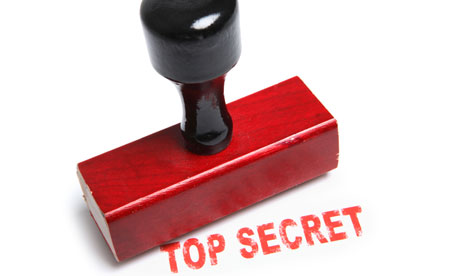
The pastime of shooting fish in a barrel has been unfairly maligned – like falling off a log, it's a hobby with a high success rate, which instils a sense of confidence and self-esteem – so I make no apology for turning briefly to The Power, the new sequel to the absurdly bestselling self-help book The Secret. Rhonda Byrne's first book revealed the one "great secret" of wealth and happiness, previously closely guarded by Plato, Galileo, Einstein and a few others: "Whatever you dream of can be yours," she claimed, "when you use the Secret." In what is sure to strike readers as a radical change in direction, The Power reveals "the greatest power in the universe – the Power to have everything you want". One can, Byrne implies, use the Power in combination with the Secret, though she never specifies how. (Probably you need a special adapter.) "Everything in the universe is magnetic," she says, so by exuding good feelings, you're guaranteed to attract good fortune, "like a magnet". As the Italians say, the mother of idiots is always pregnant; The Power would make an excellent christening gift.
To be fair to Byrne – who declined to be interviewed, as she has done since becoming embroiled in various lawsuits with new age celebrities featured in the movie of The Secret – the new book makes concessions to changing economic times. Where The Secret argued that vigorously upbeat thinking would lead sports cars and luxury homes to manifest in your life, The Power recognises that happiness isn't solely a matter of materialism. (On this, it frequently quotes Jesus, identified each time as "Jesus, founder of Christianity". Thanks, Rhonda!) Beyond that, it's just an ultra-extreme version of a positive-thinking philosophy much attacked in recent years as hopelessly unrealistic, pseudoscientific, politically questionable and liable to trigger worse mood crashes when it fails to deliver as promised.
What struck me, though, was a more fundamental problem that The Power shares with many far more credible approaches to happiness. It's not the fixation on making your every thought burst with positivity. Rather, it's the notion that manipulating the content of thoughts and feelings is the path to a better life. That's a basic assumption of much psychology, even the down-to-earth, evidence-based kind. Indeed, it seems tautologically true: to be happier, you have to turn sad thoughts and feelings into happy ones. Right?
Maybe not. Take one recent study, which found that while Russians are more likely to brood over problems than Americans, that brooding is less likely to lead to depression; indeed, for Russians, brooding seems to protect against depression. The hypothesised explanation? Russians brood from a "self-distanced perspective", as if watching events, and their responses, from a distance. The content of their thoughts is negative, but it's their relationship to their thoughts that's different.
Meditation teaches a similar lesson, as does the still youthful field of "acceptance and commitment therapy", outlined in Russ Harris's excellent book The Happiness Trap. The point isn't to improve your thoughts and feelings, or stamp out negative ones, so much as to "unhook" from them; to stop being a puppet they jerk around. This isn't a Secret, nor really a Power. It's more of a Useful Insight. Somehow, I doubt that'll be the title of Byrne's third book.
oliver.burkeman@theguardian.com

